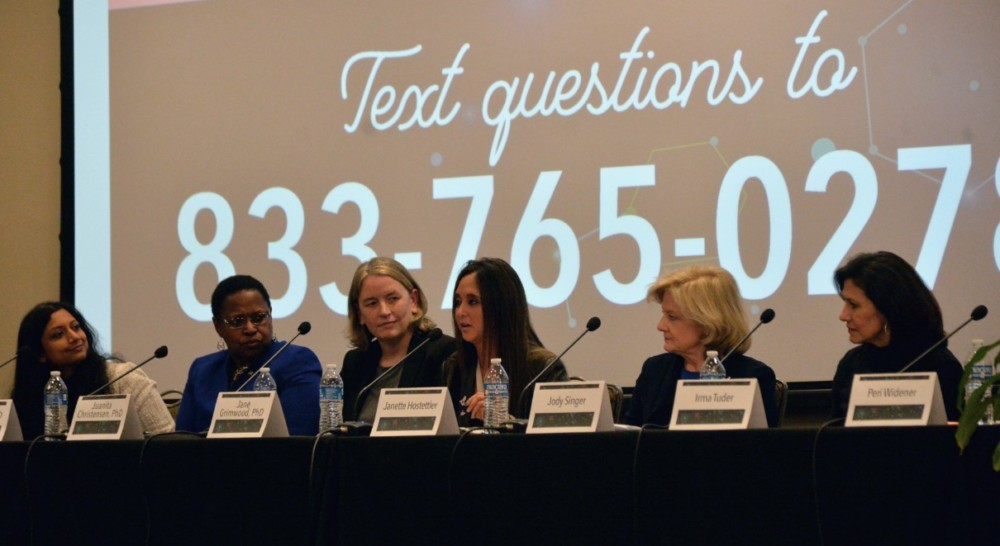By Kristen V. Brown
San Francisco Chronicle.
When Upworthy hired Rachel Fenn to head its engineering team last month, the viral clickbait king was looking for two things — it wanted a rock star engineer and, it hoped, a woman.
At the time, Upworthy had nine engineers, only one of whom was female. So the company wanted to hire someone who could not only steer its technical team, but help add diversity to its ranks.
As an industry veteran who had cut her teeth building embedded systems, managed multiple engineering teams and developed her own computer game on the side, Fenn fit the bill perfectly.
The Chronicle chatted with Fenn about the state of women in tech and her plans to help bring more diversity to Upworthy:
Q: When people talk about diversity in tech, so often the argument is there just aren’t enough female or minority engineers out there to right the balance. What’s your solution for finding diverse talent?
A: Oftentimes you can’t find a woman engineer to interview. But there are a lot of good programs in the city like Rails Bridge, which gives free programming courses to women. The idea is to get women who are sort of interested in programming to come in, take a class and get them interested enough to actually try and switch careers. I volunteer with them, and it’s a great place to network and meet a lot of women. Anywhere that teaches programming classes is good place to start. Etsy has had a lot of success with its code school scholarship program, which they have hired many women from.
You can’t just go out and try and hire a woman engineer. But what you can do is outreach, so that you are hitting all the demographics and the people you are bringing in for interviews is a fair demographic mix.
Q: What are the first steps you plan on taking to diversify Upworthy’s engineering team?
A: When I was first out of college, I was petrified of interviewing for an engineering job.
They’ll say, “Program this thing on a whiteboard with no references in front of five people!” But in real life, you look at code you already wrote, you look up references on the Internet, you create testing frameworks or you use a library that already exists that does all of those things for you. It’s totally not relevant to what your day-to-day job is going to be and it weeds out people who might be more shy or nervous or not as fast.
Now I have enough experience that I just suggest instead to show them code I’ve already written. And if they don’t like it, I’m OK with not working there. But that’s a luxury, because I’m established. I want to make sure we are not doing those kinds of things at Upworthy. I plan to reverse engineer our interviewing process. I have a female friend that I know is an excellent engineer, so I’m going to put her through our interview. And if our interview process can’t select her as a great candidate, our interviewing process is clearly broken.
Q: What was your worst job interview?
A: I can think of some really bad ones. I interviewed for one job right out of college — it was a very junior position. It was going OK, and then the last person asked me why he should hire me instead of his son. After every answer I gave, he said his son could do that better. Then after the interview the guy who had referred me to the job looked me over and asked me out on a date. I was 21 and he was like 45. He brought me to the interview to be humiliated, and then asked me out on a date.
Q: What are the biggest hurdles you see facing diversifying tech?
A: There’s the interview process. I think there’s also more pressure on women to stay in the same place, which hurts you in the long run because it’s harder to move up and get the same kind of salary bumps. Policies of giving pay based on who negotiates better or has another job offer are just generally terrible for women. I also believe in transparent salary — you have a spreadsheet where everyone can look at what everyone else makes.
I’ve also worked at many places where women just don’t get promoted. You look around on the floor and all the managers are men. If you asked people why, they just say “Oh, there just aren’t women who are management material.” They have this idea in their mind of what a good manager is and can’t open their mind to something different.
The problem isn’t that it’s an inherently discriminatory culture — it’s that it’s a male culture.
Q: If you’re a woman working in a place like that, what’s the solution?
A: Lots of times you can’t fix things. I worked at the same company for years trying to solve the problem from inside. I thought that if I could get promoted to management, I could promote other women to management. Finally I realized I should leave and go to a company that appreciates women. That was a tough decision — you don’t want to abandon ship. But sometimes you have to recognize that it’s a losing battle. I see other women fighting the same battle all the time.
















































































































































































































































































































































































